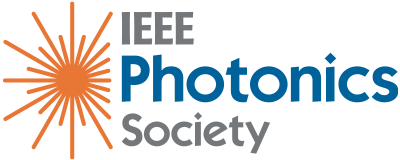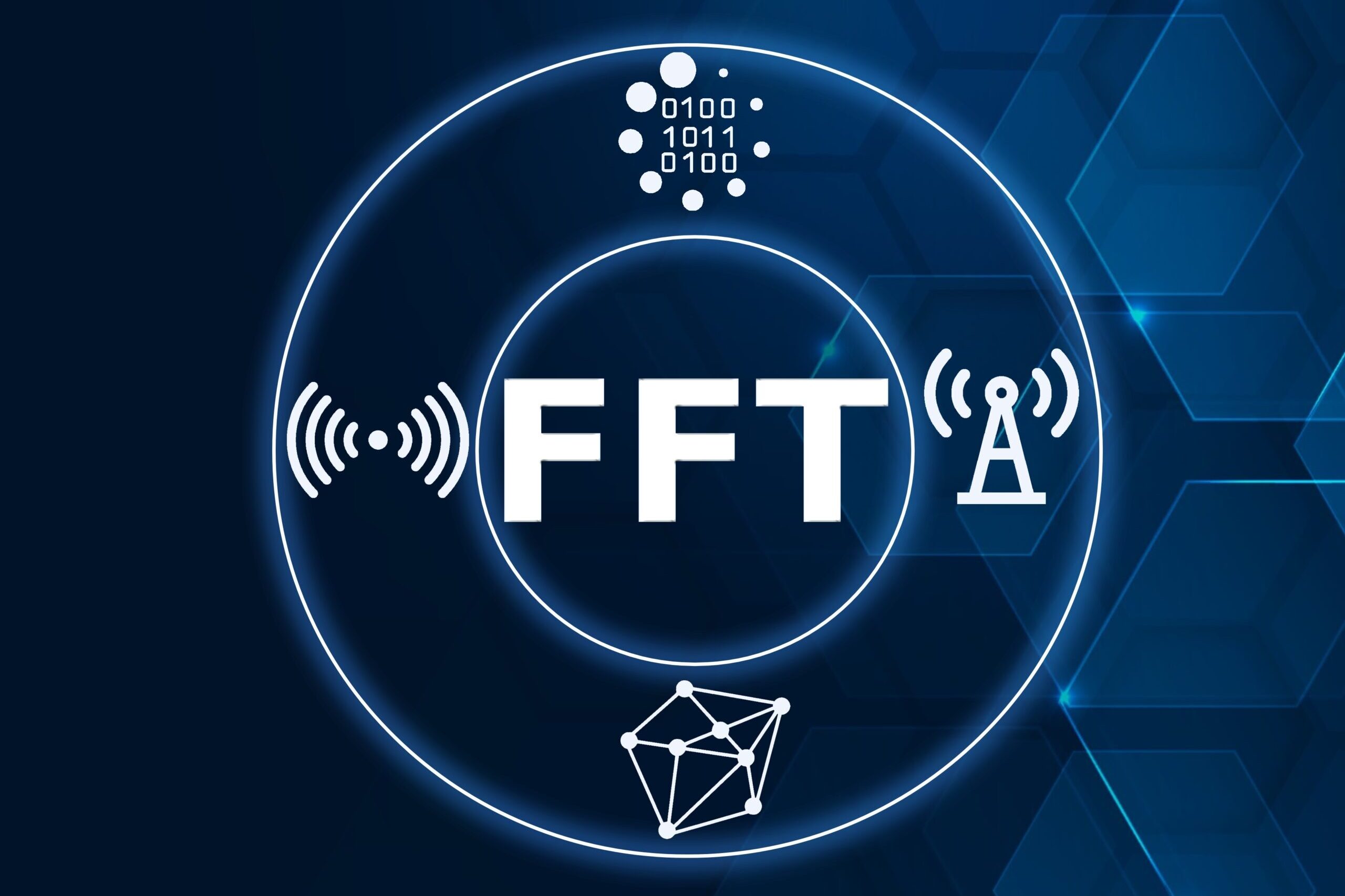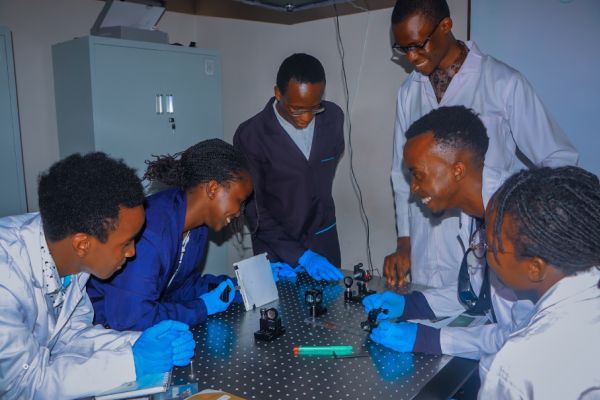By Naznin Akter

Paul Crump
Head of the High-Power Diode Lasers Lab at the Ferdinand-Braun-Institut gGmbH, Berlin, Germany
Chair of the Globalization Committee of IEEE Photonics Society
Our volunteer leaders are the driving force behind the IEEE Photonics Society’s mission. This column will commemorate leaders who have made a positive impact on the photonics community around the world. In this issue, Paul Crump, IEEE Photonics Society Globalization Committee Chair, is featured.
What is your current professional job?
I am the Head of the High-Power Diode Lasers (HPDL) Lab, a topically focused group of device engineers and physicists within the Photonics Research Area of the Ferdinand-Braun-Institut gGmbH, Berlin (FBH). Our group works closely with industry and academia partners to better understand and address limits to power, conversion efficiency, and beam quality in GaAs-based edge-emitting diode lasers. Our goal is to continuously improve diode laser performance to enable progress in the field and realize ever-better performance in commercial systems, from direct low-power medical devices to many kW pumps for large laser facilities. We work closely with FBH’s skilled scientific team to successfully optimize and realize these industrially essential devices and maintain their position as the most powerful, brightest, and efficient light source.
What role does your volunteer leadership position play for IPS? What challenges do you face?
In terms of roles, first,I am the chair of the IEEE Globalization Committee.
Second, I have also supported the IEEE Photonics Society with conference organization for many years and was general chair of the (just completed) 27th International Semiconductor Laser Conference in Potsdam, Germany. We conducted a successful “hybrid” conference, one of the first partially in-person events since the start of the COVID pandemic, thanks to a dedicated and skilled team at the FBH, with a lot of help from our international committee members and the IEEE Photonics Society. This crisis has been an enormous challenge for everyone and made organizing the conference incredibly complex. The large in-person, international participation this year demonstrates the engagement and enthusiasm of the photonics community and their commitment to the conference.
In terms of challenges, as part of the fast-growing photonics area, we confront several unforeseen obstacles like many other IEEE Photonics professionals. Lasers can be used for a diverse range of applications, which is exciting and motivating. Still, it also means that we will inevitably run into capacity limits in terms of our personal and professional commitments, as well as the difficulty of finding talented and motivated collaborators, employees, and research partners.
What do you want to accomplish as a board member this year / next year?
We are a completely global community but in an ongoing battle to enable the different regions to interact effectively and ensure that many “win-win” collaborations can happen. To help such beneficial interaction to occur, I am targeting six specific tasks as part of my responsibilities as globalization chair:
- Enable effective communication from our existing globalization regions
- Share the exciting, rapidly progressing technical stories from established, thriving groups.
- Support access and interaction between regions
- We are not alone: collaboration helps us all. Let’s find ways to make it happen.
- Offer more funding for our global studies:
- We can’t function as technical professionals without research funding. Where can we find it? This is especially challenging for inter-regional collaboration.
- Add new regions/members to our global team:
- The world is full of gifted, creative, motivated scientists. Let’s take the photonics field further together.
- Inform each other, making cooperation possible:
- We can’t collaborate if no one knows we exist. Good communication on our progress is essential.
- Be constructive members of our community:
- Let’s help our colleagues in the Photonics Society to succeed.
Why “Photonics”? What was your “photonics moment?”
After a Ph.D. in device physics, studying details of the fractional quantum hall effect in GaAs quantum wells, it was a significant leap moving into the research on industrial InP-based communication lasers. The pressing need for ever-better lasers among our customers served as a powerful motivator. We delivered something (endless, perfect photons!), and careful physics and materials research studies could pave the way for new and unforeseen possibilities. It was fascinating to see how the scientific approach works as a tool to help people.
What about our Society’s mission and work that motivates you?
Based on my interactions with the IEEE Photonics Society, I am convinced that the society sincerely wants to advance our field as much as possible and that its staff works incredibly hard to promote and assist its members. This in itself is motivating!
What specific assets do you bring to the table as a board member?
I have worked in a range of cultures and technical fields and (so far!) have managed to find solutions to technical challenges, clarify and address issues, and identify approaches that deliver “win-win” results.
Mention one thing that you have changed and one thing that you want to switch to improve the IEEE Photonic Society?
To bring about positive change, in new efforts for globalization, we have expanded our team, adding many new members from Africa and the Mid-east, and setting up a European outreach group consisting of representatives from academia and industry.
In a switch, I want to make it easier for inter-regional cooperation to take place. For this reason, the European outreach group has created a new website that (amongst other tasks) collects and publishes inter-regional funding opportunities. This group has also recently hosted its first joint team meeting (in hybrid mode) for the European, Mid-east, and African globalization communities, to enable better communication and collaboration.
Can you name a person who has had a tremendous impact on you as a leader? Maybe someone who has been a mentor to you? Why and how did this person impact your life?
Two important early influences were my undergraduate supervisors and my Ph.D. supervisor. During my undergraduate studies, I quickly learned how to resolve complex analytical tasks independently and successfully in physics, which was excellent preparation for working in tough times. My Ph.D. supervisor was a great enthusiast for his topic in my doctoral studies and helped me find my passion for working in device physics. Together, these experiences helped me to develop both survival skills and a passion for my field.
What are the most important decisions you make as a leader of the IEEE Photonic society?
How to focus and make the most of limited time and resources to enable progress on a critical task.
How would you advise members who want to become more involved in Society?
Do excellent technical work, present this at Society conferences, talk to other members of the Society and figure out where your enthusiasm lies and how you fit in and contribute to the Photonics Society’s goals. Follow up if you see a good match!
Why do you think Members should be involved as Society volunteers? What are the benefits?
“No man (no one) is an island,” to quote John Donne (British poet), – we can only thrive in photonics by collaborating with others. Working with the Society gives an invaluable network that applies to finding opportunities and talking to other members, developing technical friendships, and better understanding how best to prosper in a healthy balance of personal and professional success.
What advice would you give someone going into a leadership position for the first time?
Be realistic about what you can do while keeping other responsibilities in mind. Make decisions based on the actual circumstance, as accurately as possible, rather than how you would like it to be. Find and cherish colleagues and friends you can trust for guidance, especially if their (fair, honest) feedback is challenging to hear.
How do you ensure IEEE Photonic Society, and its activities are aligned with your core values?
Be aware of your own core values (self-awareness), the Society’s goals and values (situational awareness), and make decisions based on the facts.
When faced with two equally qualified candidates, how do you determine whom to choose?
It’s critical to have a good fit in terms of attitude and goals. A driven, productive team member is often far more beneficial than a brilliant but less upbeat applicant or a candidate that pulls in a different direction to the rest of the team.
What is one characteristic that you believe every leader should possess?
A clear sense of direction (a compelling story) and the persistence to make it happen.
What is one mistake you witness leaders making more frequently than others?
It is often very challenging to balance defending your own local team’s interests with being a good and constructive member of the broader community in your organization: too much in either direction can be destructive.
Do you have a favorite IEEE Photonics Society story?
I was an IEEE model …! Drs Katrin Paschke and Xiaozhuo (Joe) Wang, two colleagues from the FBH in Berlin, and I attended the IEEE Photonics Conference in 2011, where we were photographed while participating in the exhibition. The IEEE staff used a large photo of us in their booth for several years to promote and encourage membership in the photonics society.
Tell us something fun about yourself!
I have had a wide range of professional and personal experiences, and try to always remain open to new experiences and opportunities. After my Ph.D. studies and first job in the UK, I relocated to the west coast of the USA towards the end of the telecom boom, where I still have many friends. During my time there, I turned blonde and had a great, fun, and very productive time. I am now a happily rooted German citizen living in Berlin and have recently welcomed a beautiful new baby to our family, currently three months old.
I’m excited to take some parental leave to care for him and spend time with our expanded family!
This column is prepared by Naznin Akter, PMP® (naznin@ieee.org). Any questions or suggestions for the improvement of this column are highly appreciated.








